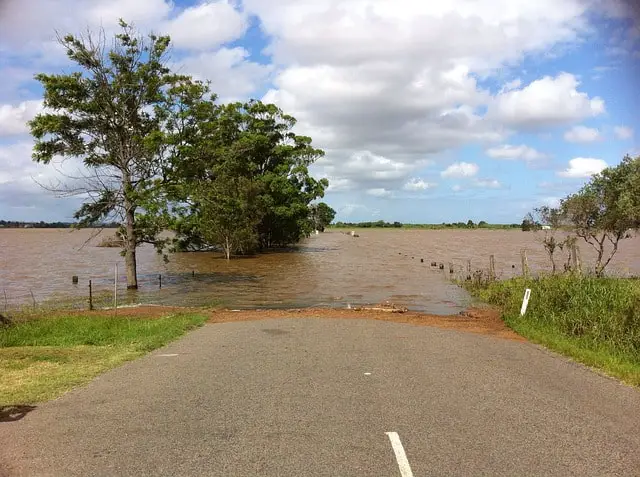There’s no debate about it, drainage problems can be really daunting.
Especially for homes designed such that water slopes towards the garage, it can be frustrating.
It can be a nightmare when you don’t have an excellent driveway drainage system in place.
But the harsh truth is that temporary fixes may not always solve the problem, especially when it’s a rainy season. Some of these temporary solutions can, in fact, worsen the problem.
This is not to forget that concrete and asphalt are impermeable, which means one crucial thing.
If the water is left to stay in the garage for a long time, disease agents may start lurking therein. This poses a health risk to you and your family.
You also don’t want to open a mosquito breeding pool in your garage or driveway.
And needless to mention, you don’t have to spend money on medication over something that you can fix.
For these reasons, it is prudent to ensure that you have a properly functioning drainage system at all times.
But this means considering a number of factors when choosing you’re a drainage system for your driveway.
It also means paying keen attention to your driveway, especially during the rainy season when problems are most likely.
Here are some helpful pointers you want to read regarding driveway drainage systems.
Driveway Drainage Systems – 5 Pointers
1. Weigh your options between DIY VS professional assistance
One of the ways to protect yourself from driveway drainage problems is to install a drainage trench.
You can decide to lay a driveway drainage trench by yourself or you can seek professional assistance. If you are putting it by yourself, be sure to get the necessary protective safety gear.
These include materials like a helmet, gloves, boots, and protective goggles.
However, having a professional install your driveway drainage system may be the best way to go.
This is because the task requires you to have a certain set of skills, and experience.
It also requires time and a set of equipment that you may not have at your disposal.
2. Think about where the water goes
Another thing to consider is where the water goes once it is in the drainage.
You can channel the water in the drainage to streams, soakaways or even ditches.
These should be deep holes composed of rubble, preferably porous rocks.
There are basically two ways to deal with drainage in driveways.
- For starters, you can incorporate a gentle trench that channels the water into a drainage channel.
- Secondly, you can use a porous surface which can include gravels or block paving materials specially engineered for that purpose.
3. Consider permeable driveways
You can also choose to use permeable driveway surfaces.
The good thing about these is that they’re available in a huge range of colors and patterns to choose from.
However, permeable driveway surfaces tend to have one major challenge, especially when there is excess water flow.
They have a limit as to the capacity of water they can take.
4. Do you need drainage pipes?
Some drainage systems for driveways require the use of pipes to channel the water to a particular destination.
If you’ll be using them, you’ll want to get the right size depending on the water flowing from your driveway.
5. Sloping is crucial
For this, you’ll need to have the right gradient measurements for your driveway.
These include the end-fall and the cross-fall. The gradient should be small in a way that it can allow water to drain in but not lead to accidents.
The trench must also not be too steep as it will prevent the continuous flow of water.
If you’re dealing with a flat and long driveway, you’ll want to make the center of the drainage higher.
This allows the flow of water from both sides, improving your driveway drainage.
If you are experiencing complications with water in your driveways, then you need to take action and ensure that you remove the water before it leads to more disasters.
If you are not certain of what to do, you can seek professional help and have the problem sorted as fast as possible.

